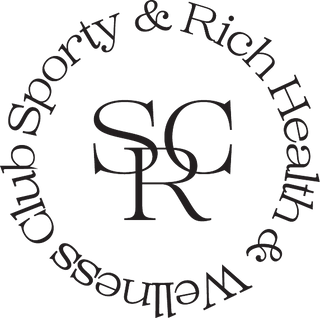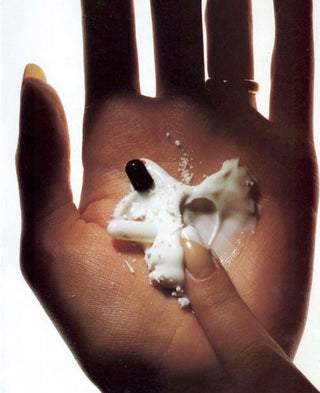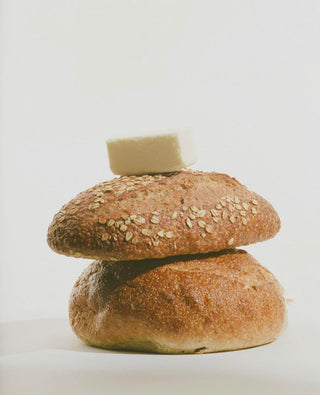
By: @ericabassotherapy
Stressed? Did you know that what we eat directly affects your mood? One of the reasons anxiety and depression are on the rise in the U.S. is due to the standard American diet. In my practice, I’ve found that most people aren’t as aware of the connection between their diet and the state of their mental health as they are of the effect it can have on one’s physical health. Why is this? It’s simply not talked about enough! As a psychotherapist who practices with a mind-body approach, I am eager to make this information and additional resources accessible to all because we all deserve to be in good health. We’ll discuss various possible mechanisms that have been proposed for the effects of diet on mental health including the role of inflammation, key micronutrient deficiencies, and glycemic balance.
We once thought that mental health diagnoses like depression and anxiety were caused by a genetic chemical imbalance in the brain. While genes do place a role in predisposing an individual to developing mental health diagnoses, I’m here to say that this isn’t anywhere near the whole picture. Furthermore, the chemical imbalance theory is not as evidenced-based as the pharmaceutical industry has led us to believe all these years. Today a growing body of evidence is discovering the connection between inflammation and depression. The Inflammation Theory (cytokine theory) of depression is an important discovery as many patients remain treatment resistant to traditional pharmacotherapy. We simply need more non-pharmacological treatment options. The inflammation theory of depression highlights the importance of environmental factors and directs us to take power in controlling the foods we eat (or don’t eat) in order to cultivate a healthy gut biome and help combat inflammation in the brain and gut.
For starters, it’s useful to know what foods to begin avoiding before we focus on which ones to eat. Research studies time and again suggest consuming a “Western diet” full of processed sugars, carbohydrates and trans fats is linked to detrimental effects on our memory, cognition, and emotions. An over reliance on processed foods causes widespread inflammation and alters the bacteria in the gut. Given this information, it’s important to avoid processed foods that contain sugars, artificial sweeteners, and hydrogenated oils that cause inflammation in the brain and body. These also can bring on blood sugar imbalances that further disrupt mood.
So, what foods do we want to focus on? Studies in the field of nutritional psychiatry have shown us that the food we consume affects the neurotransmitters in the brain, which are the chemicals that guide how we feel. If we primarily eat a processed diet, we will lack key micro and macro nutrients that are needed for balanced emotions on a consistent basis.
Consider focusing on consuming the following:
Omega-3 Fatty Acids
One of the keys to healthy brain function is anti-inflammatory omega-3 fatty acids. Low omega-3s have been associated with chronic inflammation, which is a possible contributor to symptoms of depression. Find them by consuming wild caught salmon, sardines, mackerel, flaxseeds, chia seeds, pumpkin seeds, brazil nuts, walnuts, avocado, and olive oil.
Magnesium
This mineral regulates hundreds of processes in the body and also helps regulate key neurotransmitters involved in mood regulation. Deficiencies are associated with anxiety, ADHD, and sleeping issues. Find it through consuming pumpkin seeds, dark chocolate, avocado, figs, and leafy greens.
B Vitamins:
These vitamins have been referred to as anti-stress vitamins, possibly because they decrease the oxidative stress on the body. Deficiencies in B1 and B12 are linked to many mental health problems including short term memory loss, anxiety, sleeping issues, among others. You can find these in whole grains, leafy greens, organic meat, acorn squash, asparagus, and cauliflower.
Fermented Foods
Consume sauerkraut, kimchi, pickles, and quality coconut yogurt to support a healthy gut microbiome.
Zinc
Some studies link low levels of zinc to a greater risk for depression. You can find zinc in grass fed beef, shellfish, nuts, and seeds.
Protein
Foods rich in protein contain amino acids that help to produce neurotransmitters that are key in preventing and treating depression and anxiety. Consuming enough protein through animal-based sources like pasture raised eggs, organic meat, and wild caught fish also help keep blood sugar stable, which helps fend off glucose spikes and dips.
Healthy Fats
These help to support brain function as well as keep blood sugar stable throughout the day. Good quality sources include coconut milk, avocado, and extra virgin olive oil.
If your therapist or health care practitioner isn’t focused on providing education on the link between your food choices and anxiety to some degree, treatment is not complete. I stress the importance of understanding that even if your anxiety or depression is partly genetic, it’s not something that you’re destined to struggle with forever. In addition, you may want to consider working with a functional medicine doctor or naturopath to test your nutrient levels to identify any nutrient deficiencies and get on the proper supplementation regime, if necessary.
References:
https://pubmed.ncbi.nlm.nih.
https://www.ncbi.nlm.nih.gov/
https://www.ncbi.nlm.nih.gov/
https://pubmed.ncbi.nlm.nih.
https://www.ncbi.nlm.nih.gov/
https://pubmed.ncbi.nlm.nih.
https://pubmed.ncbi.nlm.nih.
https://pubmed.ncbi.nlm.nih.
https://pubmed.ncbi.nlm.nih.
https://pubmed.ncbi.nlm.nih.
https://pubmed.ncbi.nlm.nih.
Erica Basso is a Licensed Marriage & Family Therapist practicing statewide in California. She helps guide women in overcoming anxiety, perfectionism, and imposter syndrome. To learn more about working with her, visit www.ericabassotherapy.com.















